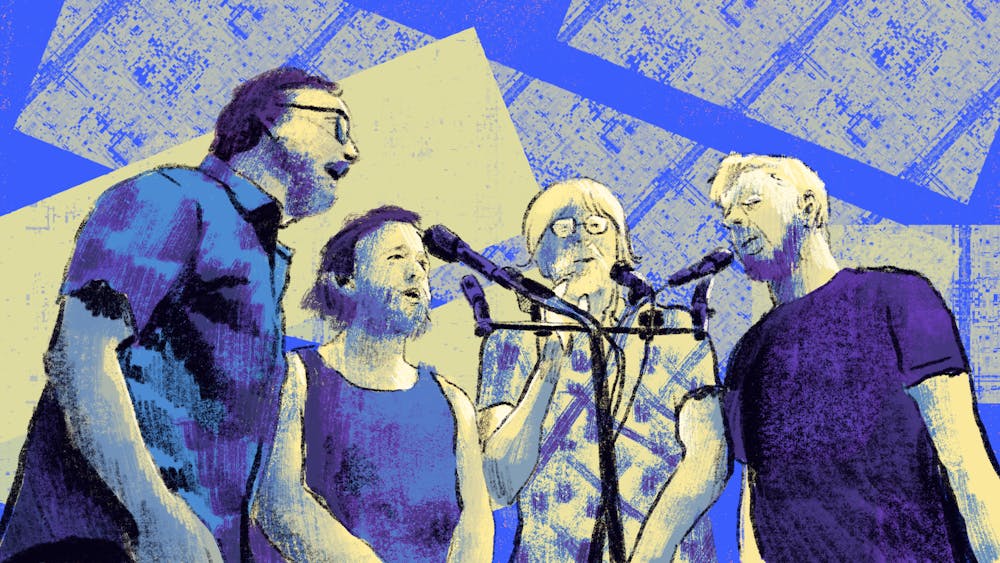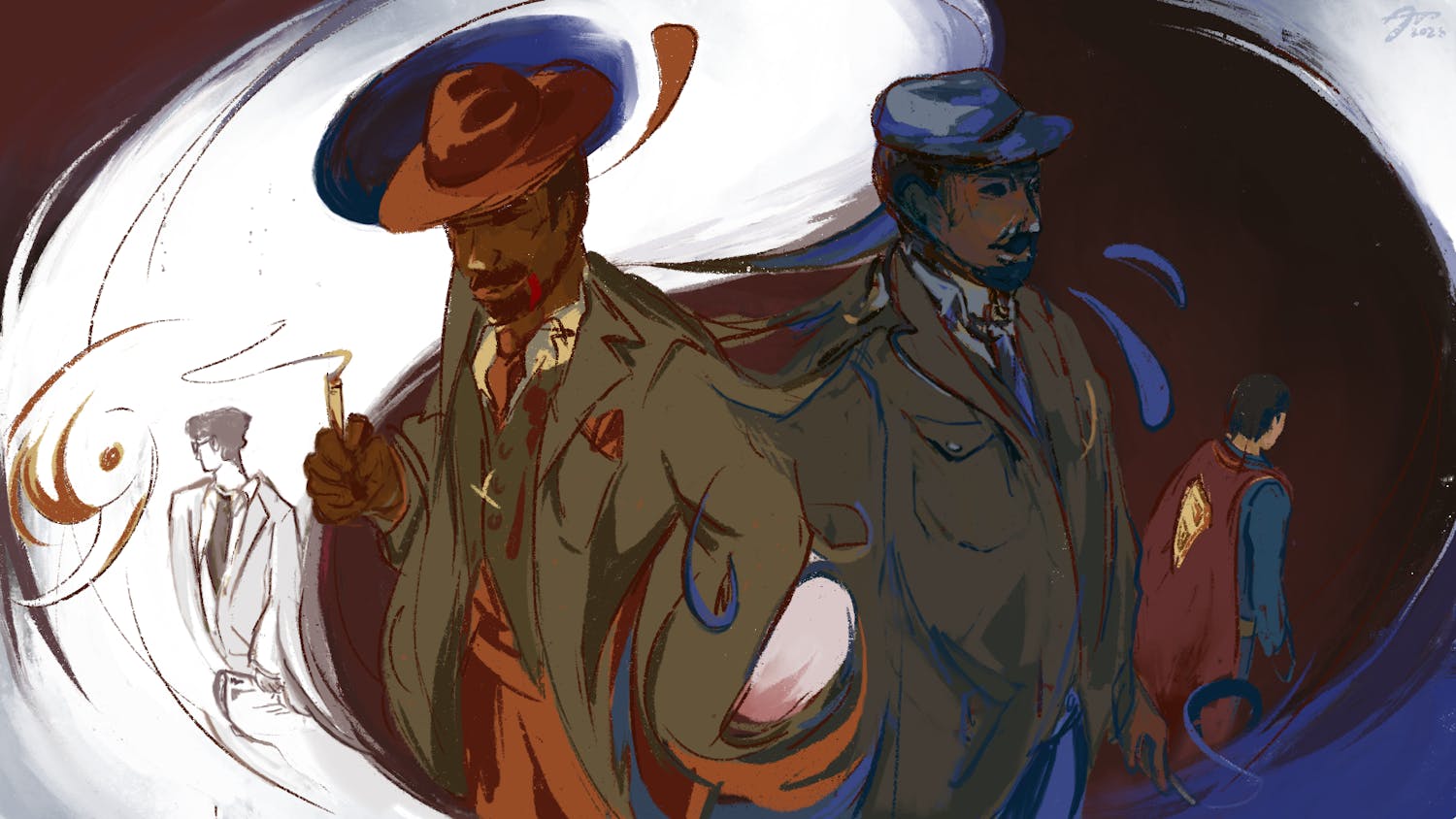It's another day. The same day you've lived countless times over. You wake up at the same time, eat the same breakfast, talk to the same people, and finally collapse in the same bed to start the cycle all over again. The next day is, well, the same. It almost feels like you're living life in third person, a voyeur to the "real world," one of adventure, excitement, and newness. It's a world you're not sure even exists and you're definitely not sure where to find. But amidst the isolation and mundanity of our corporatized twenty–first century lives, you'd give anything just to see something truly brand new.
I have good news for you: That world does exist, and next summer, it'll be in full force just an hour down the road, because Phish is coming to town.
Not just for any show, either, but for a Phish festival, a unique tradition that began with 1996's 80,000–attendee–strong Clifford Ball—a three–day concert in upstate New York, a festival devoted exclusively to Phish. Every Phish festival routinely contains the highest–rated shows of a given year, with the exception of 2018's Curveball, which was canceled due to poor water quality in the area, leaving Phish without a festival since 2015.
Even in summers with festivals, Phish fans routinely follow the band on tour throughout the whole summer. It's a cultish devotion, for sure, but not an entirely unjustified one, as Phish changes its entire setlist each night, never repeating the same song in consecutive shows. And when they finally do revisit a song, they never play it the same way, with the band's virtuosic jazz–influenced improvisations often spanning 20 minutes or more. When an improvisation reaches its climax, it is as though these thousands have awoken from a catatonic state of algorithms, corporations, and isolation and been transported to a different, better life.
This is a near–reality for many. Phish fans are a hearty cross section of the population, impressively spanning age, income, and political demographics. Many Phish fans approach their participation on tour as their sole yearly opportunity to be themselves. Others have fewer responsibilities but are further emboldened in their debauchery by the rare acceptability of it.
The unique atmosphere of a Phish concert begins on the lot. The lot is more than just the parking area for a show. It's a miniature village, complete with its own self–sustaining economy of tie dyes, crystals, grilled cheese, and LSD. Before a show, the lot is generally populated by strolling concertgoers whose dress and behavior generate a sort of Stanley Mouse–ified farmers' market. It's a largely lawless land, governed by goodwill and the barter system. Sometimes, it's merely governed by the begging system, as select attendees arrive at shows without tickets and, notably, without money, relying on the generosity of fellow lot inhabitants to get them food, drugs, and tickets. It's a method that works surprisingly often. The afternoon lot setup is more than a tailgate, but if you squint your eyes hard enough, you might mistake it for a 22nd–century college football pregame. Any semblance of normal reality, though, is lost by the time the show begins.
The first thing you'll notice about a Phish concert–proper is probably the dancing. It's something akin to watching a baby giraffe take its first steps. The concept of rhythm appears totally lost on attendees. Self–consciousness? Not here. The overwhelming scrawniness of Phish fans belies the stamina it must require to move every single part of one's body with the wild, spasmodic choreography that ebbs through the crowd for three and a half hours. The only breaks that fans tend to take from this gambol are to smoke something, offer you the opportunity to smoke something, or shout their part of some nonsensical call–and–response routine.
The soundtrack to this chaos is the propulsive groove of Phish's intrepid quartet. Each show consists of two sets and an encore, with each set clocking in at around an hour and a half. Throughout each set, Phish expands the very boundaries of sound, experimenting with alien–like effects and emphatic improvised crescendos. Lighting director Chris Kuroda has learned the intricacies of the band's improvisation and complements each new musical movement with a brilliant light show. Once the sun goes down at some point near the end of the first set, Kuroda's work takes on the corporeal spirit of the music, and a living, breathing Phish organism becomes all one can see or hear. The only reminder that you're not alone with some sort of bright, faceless musical demigod is the twirling, tweaking fans bumping into you. But they don't seem to care. This moment is religious to them.
Once the show ends, the church service is over. Emboldened by the simultaneous highs of life and Schedule I drugs, Phish fans descend once more on the lot. And this time, it is truly like another planet, consisting of various sights, such as a young man placing fresh–cut grass on his head, muttering to himself, "They can't find me here”; another shirtless man in an apparent makeshift aircraft consisting of a chair with a propeller on top, typing on a typewriter; and three men punting large chunks of asphalt at one another before retreating into the woods in search of a "troll village." All coexisting, with the constant whirr and pop of balloons being filled with nitrous oxide, the drug of choice among weary attendees post–show. Also the drug of choice of dentists trying to ease the pain of wisdom tooth surgery.
The only rule of the post–show Phish lot is, seemingly, that nobody is allowed to be normal. These are people who have, for a few hours, rejected shame, logic, and legality. They have, too, rejected technological isolation. From the moment you set foot on a Phish lot, you will not see a single person on their phone, not even to videotape the show. They have also rejected consumerism. You won't see a single brand name on the lot, where everything—food, clothes, jewelry—is homemade. Most importantly, they have rejected sameness. Phish is a unique band followed by unique people who do very unique things.
Next summer, Phish will head to Dover for its eleventh festival. It will be a weekend of incredible music, great food, loving people, and bizarre activities. You never can quite know what to expect from a Phish show, but you can assuredly expect one thing: an adventure. And if you're looking to thrill yourself for a night, Phish is looking for you.







